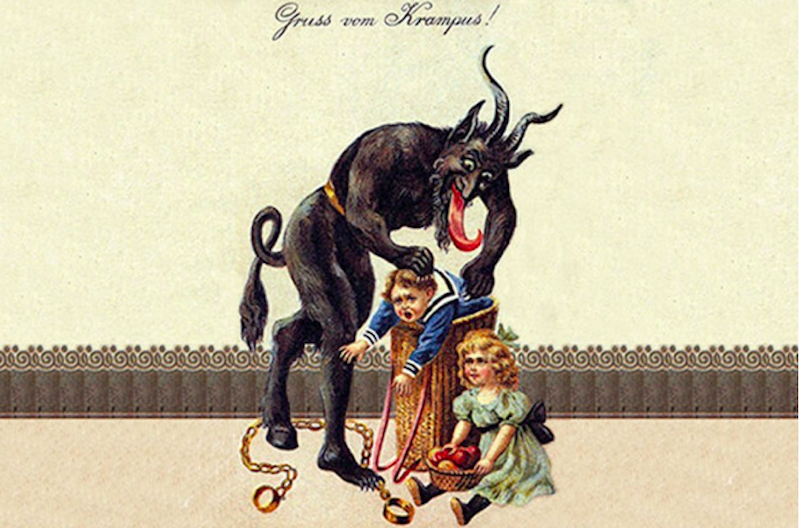In December 1992, I found myself in a refugee camp, in a country I knew very little about. Back then, it was still known as Czechoslovakia. Communism no longer existed; at least not visibly.
I left Bosnia at the end of November 1992 as the war was still raging and would continue to do so for another few years. A convoy of women and children was bound for Czechoslovakia. We were dispersed and placed in various refugee camps, scattered throughout the country. Almost everything that immediately followed was an experience in disorientation. But the Czech people welcomed us and showed nothing but kindness.
Christmas and New Year’s Eve were coming, and the administrative office of the camp wanted to do something special for all the children. We weren’t aware of it until it was announced that St. Nicholas would be visiting the camp, bearing gifts for all. We all had the Bosnian experience of Santa Claus, or as they called him, Grandpa Frost. But nothing could have prepared us for what we were about to see.
We all assembled in the cafeteria and the lights were dimmed. We started to hear loud voices coming from the distance, throughout the long hallways of the camp. As the door opened, a familiar figure entered the space: a rotund man, with a long white beard, adorned with beautiful robes, and carrying a staff. This certainly wasn’t Grandpa Frost, although it was close enough.
Accompanying St. Nicholas was an Angel (a woman dressed in the most ethereal clothes), which brought on a sense of calm. But then, out of nowhere, a creature so ugly, so frightening, so otherworldly entered the cafeteria. At the time, I wasn’t entirely certain who this was, but I’d soon after find out that this vile creature was the Devil or as he is also known, Krampus.
On the Feast of St. Nicholas, children are paid a visit from St. Nicholas, an Angel, and a Devil (Krampus). St. Nicholas asks the children if they’ve been good, and the Devil is taunting the children, probing if they’ve been bad. They’ll not only get nothing on St. Nicholas Day, they’ll also be punished by the Devil. During this time, the Devil is making all kinds of ungodly and unearthly noise; he has horns and a tail, he’s fully furred, and he’s rattling the chains. Much like the Child Catcher in the 1968 film, Chitty Chitty Bang Bang, the Devil (Krampus) desires only destruction of children.
As I sat in an outdated, wooden chair of the refugee camp’s cafeteria, I hoped that the Devil wouldn’t single me out. But this awful creature was getting closer and closer to me, and his unholy hand touched my arm. Just as he was about to grab me and put me in the sack, he backed off, and grabbed the next child. Clearly, the judgment memo he received from St. Nicholas must’ve been wrong, and I was spared. It was in good fun, and indeed, we all received a few gifts, mostly sweets. It was a way of making us feel welcome and part of their tradition.
To an American parent of today, it’d be unimaginable for their children to participate in such a hellish event. Kids see Santa and are told they won’t get any presents unless they’ve been “good,” whatever that even means in today’s society. Maybe the whole theater play of St. Nicholas goes too far, and children shouldn’t be scared that much. Yet at the same, the Feast of St. Nicholas is much more than that.
In the past, culturally (and not only religiously), there was a certain acceptance of good and evil, or more precisely, the difference between good and evil. Today, many don’t evaluate life in those terms, especially when it comes to teaching the children what that difference may be. Krampus may be just an aesthetic expression of our fears, yet there’s a far bigger reality behind that darkened face, and black eyes, and undulating horns. Question arises: do people believe in the Devil?
Asking such a question implies an even bigger one: do people believe in God? There’s nothing wrong with mild secularization of the experience of Christmas. Anyone can be part of a singularly American tradition, and it can bring people together. But I wonder what are we losing if Christmas is disconnected from God? Belief in God is not a fuzzy feeling, and it certainly includes a firm recognition of evil.
The Feast of St. Nicholas (in Czech, Mikuláš) I experienced in the refugee camp will or more importantly, shouldn’t be a part of an American tradition. Even in some European countries, the event is more folkloric than entirely Christian. Nevertheless, its aesthetic representation is worth considering because its path inevitably leads to our understanding and acceptance of good and evil.

